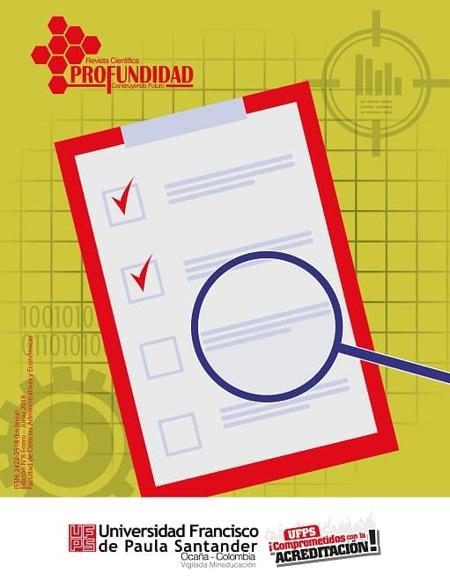The entrepreneurial culture in business administration students
La cultura emprendedora en los estudiantes de Administración de Empresas
Main Article Content
Maintaining a good entrepreneurial culture in education allows to generate a sustainable entrepreneurial spirit, hence, its applicability allows the design of strategic actions that drive and inspire students to build their business idea, therefore, the objective of the study was to identify the entrepreneurial skills and abilities that students of Business Administration possess, likewise, the impact that the program's subjects have. In this measure, the research used a quantitative methodology with a descriptive approach, since this modality offers the possibility of making a deeper analysis of each of the characteristics of the individuals; the survey was applied as a collection technique to 144 students from different semesters, where it is concluded that the student population has great capacities and abilities to undertake, however, the education that is given does not influence enough for them to build enterprises that contribute to regional development.
Downloads
Article Details
Concha, R. (2016). Teorías del comportamiento humano. Obtenido de http://repositorio.udea.edu.pe/bitstream/handle/123456789/37/Teor%C3%ADas%20de%20comportamiento.pdf?sequence=1&isAllowed=y
Educación., C. y. (2003 ). Espiritu Emprendedor Motor Del Futuro. .
Espiritu, R. (2011). Analisis de la intención emprendedora en estudiantes universitarios a tráves de los rasgos de personalidad. Revista Multiciencias, 11(1), 65-75. Obtenido de https://www.redalyc.org/pdf/904/90418851009.pdf
Glave, M. A. (2008). El emprendedor y la empresa: una visión retorica de los determiantes a su constitución. 5-44.
Gomez, G. y. (1996). Metodologia de la investigación cualitativa . Aljibe .
Herrera, c., & Montoya, L. (2013). El emprendedor: Una aproximación a su definicipon y caracterización. Revista punto de vista(7), 7-30. DOI: https://doi.org/10.15765/pdv.v4i7.441
Marulanda, J., Correa, G., y Mejía, L. (2009). Emprendimiento: Visiones desde las teorias del comportamiento humano. Revista Escuela de Administración de Negocios(66), 153-168. Obtenido de https://www.redalyc.org/pdf/206/20620269008.pdf DOI: https://doi.org/10.21158/01208160.n66.2009.479
Meléndez, I., y Maldonado, F. (2014). El institucionalismo como factor determinante en el proceso de gobernabilidad. Revista economia(38), 59-86. Obtenido de https://www.redalyc.org/pdf/1956/195647544004.pdf
Ministerio de industria, turismo y comercio. (Septiembre de 2003). Espiritu Emprendedor Motor de Futuro. Obtenido de https://www.oei.es/historico/etp/espiritu_emprendedor_motor_futuro_guia_profesor.pdf.
Naranjo, M. (2009). Motivación: Perspectivas teoricas y algunas consideraciones de su importancia en el ambito educativo. Revista educación, 33(2), 153-170. Obtenido de https://www.redalyc.org/articulo.oa?id=44012058010 DOI: https://doi.org/10.15517/revedu.v33i2.510
Romero, O. (1981). Motivación intrinseca, motivación de logro y valor incentivo de los estudios superiores. Obtenido de http://www.saber.ula.ve/bitstream/handle/123456789/38180/motivacion_intrinseca.pdf;jsessionid=6847BF206ECB2082FA402C5923633008?sequence=1
Uribe, V. B. (2013 ). El desarrollo local y empresarial: la formación como factor basico para orientar al emprendedor. . Omniaseience , 34.










